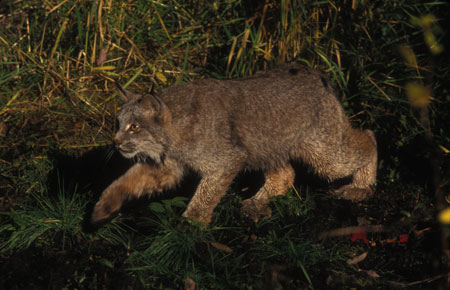I chose to take into consideration the different ways that a muzzleloader and lynx would be stabilized and preserved. For the muzzleloader, the main agents of deterioration we would have to consider might be fire, water, pests, light, and humidity. Fire is probably the agents of deterioration that every object would have to be protected against, and one major way to mitigate that would be to have a good fire detection and prevention system that would be able to identify fires and dispense water. Storing the object in fire-proof storage would also help with this kind of prevention. Water is another major agent of prevention that would have to be delt with. The main ways of keeping an item like the muzzleloader safe would be to store it in water-proof storage that is not touching the ground. Pests like termites might be an issue in regards to the wood of the muzzleloader, which can be prevented with a pest trap in storage with the gun. Humidity could also be another issue for the wood of the gun, as humidity can cause wood to shrink and swell. This can be prevented by having a device that tracks humidity and have systems that change the humidity in the case and have a constant humidity level in storage. Light could cause the wood on the muzzleloader to lighten. The way to avoid this is to store the gun in little to no light, and to have it on display in a low light room.
As for the lynx pelt, the main agents of deterioration that would affect like item would be fire, pests, water, and humidity. Fire again, is the main major agent of deterioration, and the way to mitigate that would be to have a good fire detection and prevention system that would be able to identify fires and dispense water. Storing the object in fire-proof storage would also help with this kind of prevention. Water is also another thing to worry about, which can be prevented by storing the pelt in water-proof storage and have that storage not touch the ground. Pests are also a problem for pelts, and a way to prevent that would be to have a bug trap in the same place that the pelt is stored. Humidity would also be a problem for pelts, as moisture in humidity could cause mold and mildew. The way to prevent this would be to store the pelt in an dry area, that doesn’t have a lot of moisture.
Question: What it something that you would consider to be important to preserve?

Great post! I also looked at the Russian muzzleloader and the lynx and agree that humidity could be a huge issue for both. I think it is really important to preserve items that might not be around forever. Rare flowers, interesting animal specimens, historically cultural objects. Items that may have not been preserved originally but found later in history are also important to preserve – like fossils or found objects. Keeping parts of history is important for future research and education.
When i think of things that need to be preserved, I think of knowledge, whether written, recorded or digital. Working as a pre-contact archaeologist, none of the sites I work with have written records associated with them and many of these cultures have lost cultural knowledge and records due to colonialism. Working with these kinds of sites just emphasizes how important it is to record and preserve the knowledge we have now however we can for future generations.